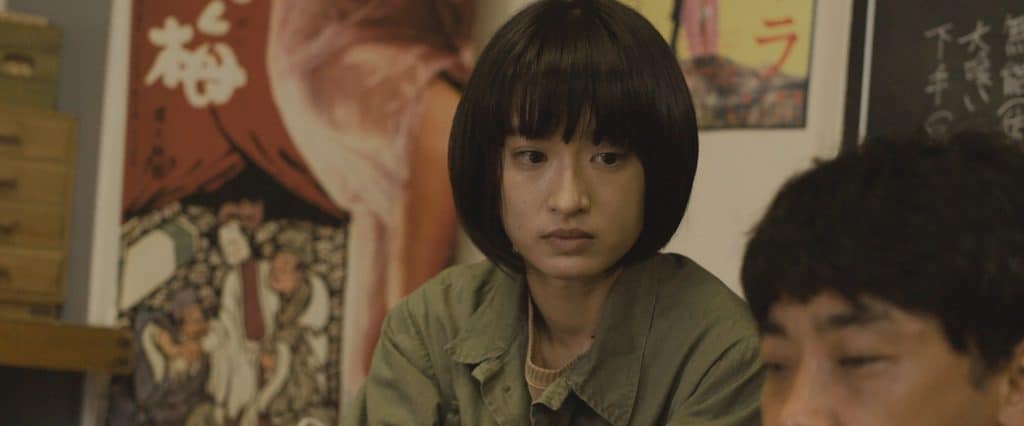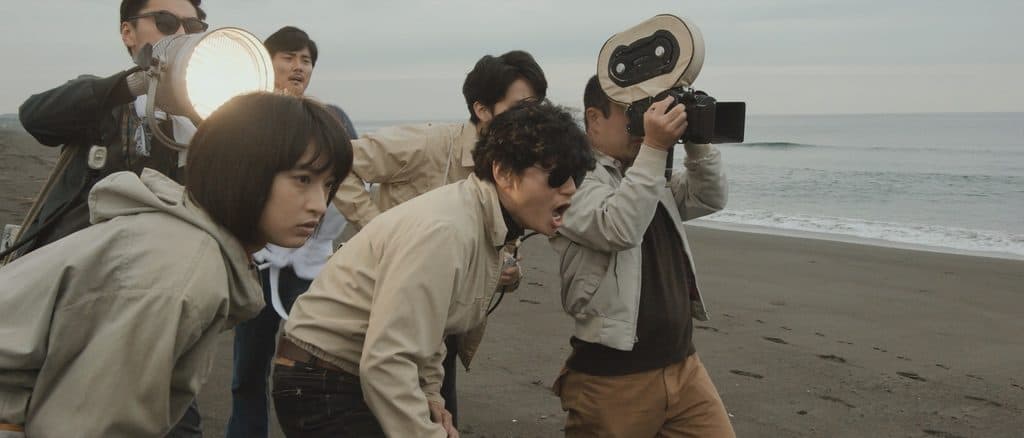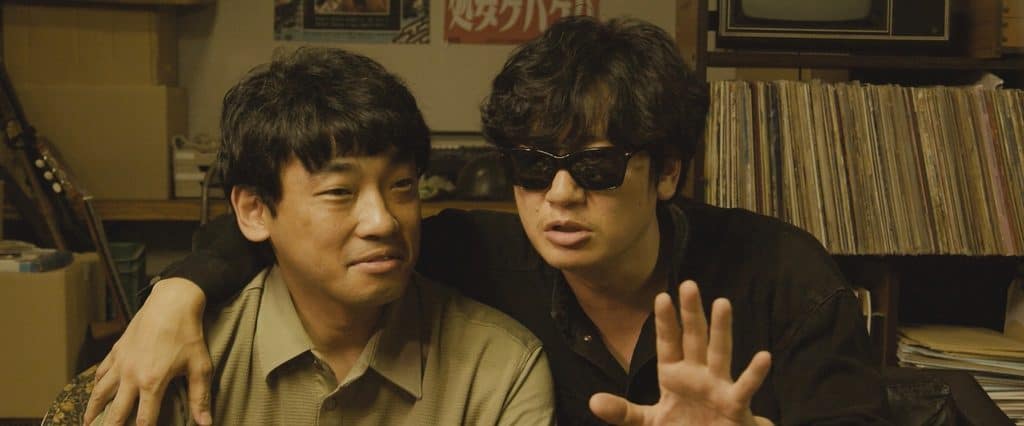Even within the ever-changing cinematic context of Japan, nobody embodied the perennial outsider sensibility with greater success than political pink director Koji Wakamatsu. A belligerent misfit who gleefully incorporated his incendiary outlook on sexuality, politics (and the spaces where they meet) into his art, Wakamatsu was an outlier from the mainstream – and even the New Wave independents of the late ’60s early ’70s, to which his work was so frequently compared.
As head of the independent production company Wakamatsu Pro, he produced and directed such volatile pink titles as Go Go Second Time Virgin and Ecstasy of the Angels with the kind of freedom Japanese cinema would rarely see again after its intense periods of industrialization and commercialization in the coming decades. Knowing this, Dare to Stop Us, the latest from The Blood of Wolves director Kazuya Shiraishi, puts itself up for a fool’s errand to try and capture even a fragment of this anarchic sensibility in the brief snapshot it offers of Wakamatsu Pro’s peak period in the early ’70s.

Yet the film has a creative inlay into experiencing that world, albeit one that has been overly favored in many biopics as of late, by structuring the story around fledgling assistant director Megumi Yoshizumi (Mugi Kadowaki) and her induction into the world of Wakamatsu Pro. In a “behind every great man” sort of setup, Megumi is one who joins Wakamatsu (Arata Iura), due her intense passion for his work and the message behind his films, happily serving under his eccentric, aggressive directing style to climb the ranks from AD to writer and then producer of her own films under Wakamatsu Pro.
This choice that Junichi Inoue’s script makes is a bold one but clearly serves two very clear purposes: to shed light on an underexposed aspect of Wakamatsu’s story (his system of collaborators), and to keep an appropriate amount of distance from Wakamatsu himself so that the intense mystique and reverence the film – produced by the still-functioning Wakamatsu Pro, I might add – heaps onto him can be justified.

The major drawback that prevents Dare to Stop Us from being the fun stroll through Japanese cinema’s rebel years is the overly flattening portrayal of Wakamatsu, which lacks any sort of nuance or contour to it. Iura plays him as a gruff, unapproachable genius who dictates productions off the top of his head and scowls at the inferior state of the film world and as an ascended artiste who sees through it all, being the only one who is really saying something in those politically fraught times.
It is a disappointingly one-dimensional characterization for such an important figure to Japan’s New Wave that borders on parody in how he gets reduced to facile statements about world corruption through a stiff SNL-esque performance by Irua, who wears the trademark sunglasses at all times and is never seen without a scowl or a cigarette in his mouth. Considering that the cast is filled with actors who worked with Wakamatsu before his death, I am willing to believe this is based on true accounts, but that does not prevent it from coming across put upon for the sake of his legacy.
Besides this problematic stumbling block, the film itself is an excellently paced deep dive into the lesser-known productions of Wakamatsu Pro and the hoops upon hoops the filmmakers had to jump through in order to realize their vision of a more rebellious cinema. Anchored to Megumi, the film delights in staging scenes based on sets she was a part of, effectively showing the method to Wakamatsu Pro’s madness as Shiraishi restages iconic shots from Wakamatsu’s filmmaking with the utmost reverence and respect.

For what it is worth, the costuming, set design and the smoky color grading in the film completely absorbs you into the period it is attempting to portray and gives Shiaishi’s recreations some necessary legitimacy. The film looks great and moves even better, but one can never shake the feeling we’re being sold a cleaned-up, complimentary tale of Wakamatsu instead of an authentic one.
It might be a simple us-against-the-system narrative, using Wakamatsu as the lighting rod of controversy, but at its core Dare to Stop Us is an enjoyable romp through the production company belonging to the “bad boy” of the New Wave’s production company that is nothing if not respectful to his legacy. It might not be as rounded or penetrating as one would like or as incendiary as its title suggests, but an excellent cast, gripping look and tight narrative make the reductive outlook mostly worthwhile.







